- Home
- Scott Turow
Presumed innocent kc-1 Page 30
Presumed innocent kc-1 Read online
Page 30
"Perhaps if it is not productive to raise questions," says Sandy, "we should consider stipulations." A stipulation is a statement agreed to by the prosecution and defense which recites what a witness would say, so that he need not be called. As Stern thinks aloud about the possibility, he becomes more convinced it is the right way to proceed.
We will agree to the testimony not only of the phone company representatives but also the Hair and Fiber experts and the forensic chemist. By doing that, we win shorten the time in which this damaging evidence is actually before the jury. Della Guardia may not accept the proposal, but he is likely to. For the prosecutor, there is always a blessing in not having to come forward with your proof.
With these decisions made, Kemp and I return to the library, a central conference room in Stern's suite where the statute books and law reporters are shelved floor to ceiling in dark oak cases on each of the four walls. I work at one table, Kemp at another. I became aware after a few minutes that Jamie is watching me, but I still do not look up.
"I don't get it," he finally says out loud, giving me no choice. "You said there was something wrong with those phone records."
"Jamie, cut me a break. I've thought about it since."
"You said we should look into whether or not they'd been doctored."
The intensity in his eyes is not really anger. There is something vulnerable. As he seldom does, Quentin Kemp, in his cowboy boots and tweed sportcoat, looks undefended and young. He thinks of himself as much too hip to be capable of being misled.
"Jamie, it's something I said. Okay? Under the circumstances. You understand."
But I can see that he does not understand at all. It bothers me, the look in his eye, his knowing that now he can't believe me. I fold my pad and put on my coat. Sandy is still in his office when I tell him I am leaving for the night. He is studying the reams of scientific evidence that Nico produced in response to our motions. Spectrographs. Print charts. The full report of Carolyn's autopsy. He is dressed in casual clothes, a handsome sweater and slacks, and he seems relaxed under the green glass shade of an auditor's lamp, smoking his precious cigar.
Lipranzer is on the stand on Monday morning. Nico takes care to keep him away from me. The prosecution team walks down the corridor with Lip, just as Ernestine is calling court to session. Lipranzer is wearing a suit, something he hates to do, but he still looks more like a convict than a policeman. It is an awful double-knit thing with a kind of carpetbag pattern. His duckass hairdo is particularly slick. I end up holding the door as Lip enters the courtroom, and in spite of the presence of Nico in front of him and Glendenning behind, Lipranzer gives me both a wave and a wink. I am fortified just to see him again.
Nico handles Lip well. It is his best examination of the trial so far. He is matter-of-fact and gets what he has to quickly. He knows that Lip is not friendly. He will tell the truth, but-so different from Horgan-is awaiting any opportunity to bite Nico's heels. Delay is careful not to give him the chance. If he is professional, he knows he can count on Lip to act the same way. They are both suppressed and brief.
"Did Mr. Sabich ever tell you that he had a personal relationship with Carolyn Polhemus?"
"Objection."
"On the same basis as with Mr. Horgan, Mr. Stern?" the judge asks.
"Indeed."
"The objection will be overruled. Ladies and gentlemen, I'm sure you remember what I told you last week about questions based on assumptions. Because Mr. Della Guardia is sayin it, doesn't make it so. You may proceed."
I have wondered how Lip will answer the question. But he says simply, No.
Nico did not ask whether I suggested that such a relationship might exist, or whether it was clearly understood by both of us, a question Della Guardia in fact cannot properly put. He asked if I told him, and Lipranzer has responded correctly. Hedged in by the formalities of the rules of evidence, our truthfinding system cuts off the corners on half of what is commonly known.
In a clipped, almost British way, Nico elicits the fact that I told Lip not to collect the MUD records from my home. And he also brings out from Lipranzer the occasions on which he had to remind me to request computer analysis of the fingerprints found on the glass and elsewhere in Carolyn's apartment. It all emerges between the two of them with a strange undercurrent. I am sure the jury knows something is not right here. And Nico is smart enough at the end to let them know what it is. When he has got what he needs from Lipranzer, he sets up the cross, by showing bias. He asks about the cases that Lip and I have worked together.
"Would it be fair to say that by now the two of you have formed a kind of prosecutorial or investigative team?"
"Yes, sir."
"And as a result of working as a team, have you formed a personal friendship?"
"Definitely."
"A close friendship?"
Lip's eyes skate toward me for a moment.
"I suppose so."
"You trust him?"
"I do."
"And he knows that?"
Stern objects: Lip can't answer about what I know, and the prosecutor is leading. The witness has already characterized the relationship. Larren sustains the objection on all grounds.
"Well, let me put the question like this: Were you assigned to the case initially?"
"No, Sir."
"Who was assigned?"
"Harold Greer, a detective from the 18th District, where the crime occurred."
"Is he a competent investigator?"
"In my book?"
Nico is careful here, in order both to avoid objections and to keep Lip from zinging him.
"Has Mr. Sabich ever expressed to you any reservations about Harold Greer's abilities?"
"No, sir. Everybody I know thinks of Harold Greer as a top-grade cop."
"Thank you." Nico, smiles, savoring the bonus. "And who, to your knowledge, decided to make this a Special Command matter and bring you in on this case, Detective Lipranzer?"
"Mr. Sabich requested my assignment, if that's what you're askin. He had Mr. Horgan's say-so."
"To your knowledge, Detective Lipranzer, does the defendant have a closer personal relationship with anyone on the police force?"
Lip shrugs. "Not that he's mentioned."
Nico struts a little.
"So it's fair to say, Detective, is it not, that you are the person on the city police force least likely to suspect Mr. Sabich of murder?"
The question is objectionable. Stern starts to move, then ceases, with his hands poised on the arms of his chair. This time I am keeping pace with him. He has seen Lip hesitate and knows that Nico, by improvising, has made his first error. He has given Lipranzer an opening and is going to take a blow.
"I would never believe that," Lip said simply. He leans on 'never.' Just right. That will sit well with the jury. He's not going out of his way to hose Nico. But he's taken the opportunity to make his feelings known.
Sandy rises to cross. We talked last night about not crossing Lip at all. Stern did not want to emphasize Nico's favorable points. But apparently the direct went even better for the state than Stern anticipated. Nico's direct has opened the door to a kind of catalogue of the successes Lip and I have scored together as a way of explaining why I would choose him for the case. Stern runs through them one by one.
"And as a matter of fact," says Stern, when he is at the end of that, "even in the midst of this murder investigation you and Mr. Sabich were inquiring about yet another matter, weren't you?"
Lip is puzzled.
"Wasn't there a file, which had been stored in Mr. Horgan's drawer-" Sandy does not get any further before Nico is on his feet yelling. Larren picks up his gavel and points it at Stern.
"Mr. Stern. I have told you on too many occasions that I do not wanna be hearin any more about that file during the prosecutor's case. You went much too far while Mr. Horgan was testifying and I'm not gonna abide any reoccurrence."
"Your Honor, this evidence is critical to our defense. We in
tend to continue exploring the matter of this file when it is our turn to present evidence."
"Well, if this is critical to your defense, then we can talk about calling Detective Lipranzer back at that time. But I advise you, sir, to move on to another area of inquiry, because I have not heard near enough to let you go chasin that hare all over the courtroom at this time. Am I clear?" Judge Lyttle peers over the bench with an impressive concentration of his features.
Stern does his little cut-rate bow, inclining his head and shoulders. I find myself disconcerted by Sandy's lapse of judgment. He has taken a beating in the presence of the jury, a setback which was entirely predictable, and I still do not understand what he is trying to accomplish. He's already cast his shadow over Molto with that file. Why does he harp on it? The jury is bound to be disappointed, particularly when he keeps promising to produce evidence that we do not have in hand. We cannot offer the letter I found in the B file, because it is hearsay. I do not understand Stern's bluff, and he is cavalier whenever I steer him toward the subject. He treats it as if it is just another courtroom effect.
Stern, in the meantime, has come back to the defense table.
"Now, Detective Lipranzer, Mr. Della Guardia asked you some questions About the telephone records." Sandy holds up the documents. "As I understand your testimony, it was you who raised the matter of his home number with Mr. Sabich, is that right?"
"Yes, sir."
"He did not bring it up?"
"No."
"He did not ask you in advance not to obtain the records from his home? Am I right?"
"Absolutely correct."
"In point of fact, he informed you at the start that you might find calls from Ms. Polhemus to one of his phones?"
"In his office, right."
"He didn't ask you or tell you not to seek any records for that reason, did he?"
"No, sir."
There is a ringing emphasis to all of Lip's answers. Stern is putting on a demonstration now, showing what a cross-examiner can do with a friendly witness. But it is all too clear. There is no resistance. Lip is more or less allowing Stern to testify. He quickly endorses Stern's proposal that it was Lipranzer's own idea not to obtain my home records. He considered them irrelevant; I simply acquiesced in the suggestion, saying, as people often do, that a subpoena was best avoided since it might upset my wife. Sandy returns to counsel table for a document. He numbers it, and hands it to Lip for identification. It is the original subpoena duces tecum to the phone company.
"Now, what prosecutor issued that subpoena?"
"Rusty. Mr. Sabich."
"His name appears as the authorizing signatory on the face, does it not?"
"Yes."
"And by its terms does that subpoena require production of these very records?"
"According to what it says?"
"That's my question."
"The answer is yes. The subpoena would cover these records."
"Does it contain any exemption for Mr. Sabich's home?"
"No."
"And any time you or anyone else wanted to examine the records of Mr. Sabich's home, this subpoena would require the production of those records?"
"Yes."
"As a matter of fact-please do not answer if this is beyond your knowledge-when Mr. Molto and Mr Della Guardia decided that they wanted those records, they relied on the authority of this subpoena to obtain them, did they not?"
"I think that's right."
"And so Mr. Sabich stands on trial here on the basis of evidence that he himself subpoenaed, correct?"
The courtroom ruffles. Nico objects. "The question is argumentative."
Larren shakes his head benignly.
"Mr. Della Guardia, you're tryin to show here that Mr. Sabich hindered the gathering of evidence, as a way to prove guilty knowledge. And the prosecution is entitled to do that, but the defense is entitled to show that the evidence that is being presented was actually gathered through his efforts. I don't know how else they meet your proof. Overruled."
"I repeat," says Stern, standing before Lipranzer, "Mr. Sabich is being tried here with evidence he himself subpoenaed."
"Right," says Lip. Eager as a recruit, he adds, "Just like the fingerprints."
"Just so," says Sandy. He proceeds to the fingerprints. It was Sabich who personally visited McGrath Hall, met with Lou Balistrieri, demanded that the prints be processed. True, Sabich was busy, running the entire P.A.'s office while Horgan campaigned, but again it was his own efforts that produced the evidence now being used in an attempt to convict him. Did he obstruct you?" Sandy asks at the end.
Lip sits straight up in his chair. "No."
"Did he impede you?"
"Not in my book."
"Indeed, Detective, I believe you told Mr. Della Guardia that even if you had known of this evidence, your respect and affection for Rusty Sabich after many years' association is such that you would never have suspected, let alone believed, that he had committed this murder. Is that right?"
The way Lip hesitates, I fear for a moment that Stern has gone too far. But then I see that Lip is merely making his own ungainly effort at dramatic effect.
"Never," he repeats, and Stern sits down. As he does, he smiles furtively at me, a gesture meant largely for the jury. Nonetheless, for the first time I have the feeling that the jurors are not satisfied by Stern's performance. It is unconvincing. This tour de force still does not explain why I did not volunteer to Lip the information about the calls from my phone, especially the one on the night of the murder. Stern's cross does not offer any reason why I could not work with Harold Greer, whose appearance is surely far more impressive to the jury than Lipranzer's. It does not show what alternatives I had to going to Lou Balistrieri when Lipranzer-not to mention Horgan-was nagging me to do that. And this last exchange, while touching in its awkwardness, is simply baloney. No one could fail to be discomfited by the discovery of the phone records and the prints. The doubtful nature of the cross is emphasized by Lip's obedient response to Stern's guidance. It is all too clear: Lipranzer is a friend, willing to be misled. The jury will not fail to perceive this. It is as I always feared. The rule of equal and opposite reactions applies in the courtroom as well. Due in large part to his visible reluctance, Dan Lipranzer has been the most damaging witness against me to date.
The afternoon continues the downward movement. The stipulations are prepared and read. Coming on the heels of Lipranzer's testimony, the revelation of the actual content of the telephone records is crushing. Nico reads the stip himself. He has finally caught the measure of this jury. They are a bright bunch and want the facts delivered without varnish. Nico assumes a flat, understated tone and looks up just a little when he finishes reading so that he can watch the evidence drive home. The jurors are attentive to him and I feel the weight of their calculations. I discover that, as a defendant, you experience the lows in the courtroom far more acutely than as an advocate. My afternoon settles into a feeling of weakness, suppression with a coefficient of palpable nausea.
The stipulation about the carpet fibers is lengthy, but it has a similar impact. By agreeing to forgo the testimony, Nico, in theory, lost the drama of a live presentation. But the technical witnesses tend to be dry and overly involved. The written summaries are direct enough to have some bite. There is no chance this way that Stern can engage in any of his masterful misdirection or minimization. The facts, as they are, emerge with painful silence. The one favorable aspect-that none of my clothing matched any of the fibers found-is too easily explained. The clothes I wore that night were discarded-with the murder weapon. Or simply did not shed. These conclusions, inevitable and arithmetically direct, seem to thicken the air of the courtroom. I can sense them taking place in every quarter. And with them a kind of hush or calm inhabits the place, a dawning resolution. It is more than the mid-afternoon lull. Instead, it seems that all of the observers, including the jurors, have perceived a change in direction, a swing of momentum more in line with or
iginal expectations. It has taken the prosecutors longer than it should have, but they are assuming control of the trial, proving their case.
As usual, it is Molto, heedless and overeager, who begins to drag me back from the abyss. When the last stipulation is read, he asks for a corridor conference.
"What is it?" asks Larren when we are all assembled.
"Judge," he says, "we are ready to proceed with the fingerprint expert. There is just one small difficulty."
Kemp eyes me with wicked glee. The difficulty, so called, is obvious to both of us: They have not found the glass. Jamie's smile is welcome. It is the first sign of any renewed warmth between us in better than a day, and it comes at the right moment, for the members of the defense have each been wordless and grim all afternoon. During the 3:30 recess, I encountered Stern in the john and we did not say a thing aloud. He gave me one of his Judeo-Latin shrugs. His eyes were listless. We knew this was coming, he seemed to say. Our time on the high wire has ended.
Now, in the small anteroom to his chambers, Judge Lyttle fulminates. Molto still cannot do anything right in Larren's eyes.
"Are you telling me that you have completed your search and this object absolutely cannot be found?"
"Judge-" he starts to say.
"Because that's one set of facts. And I'll have to rule on that basis. But if you're tellin me that you think the thing is gonna turn up but it's convenient right now for you to go ahead without it, then that's quite another. We aren't gonna be talkin about proceeding now and discovering the evidence later. Am I understood?"
Nico catches Tommy's arm. He tells the judge they would like to take one more night.
"That's fine, then," Larren says. "Do I take it that you're moving for an adjournment for the day?"
Nico crisply says, "Yes." It is clear that the day's success has fortified him. He can tolerate adversity without distress. His old confidence seems to possess him again.
"Your Honor," says Stern. "I hope the court has not decided to let the prosecution proceed with the fingerprint evidence in the absence of the glass. Certainly, if Your Honor please, we would ask to be heard on that question."

 Testimony
Testimony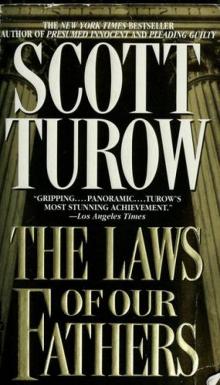 The Laws of Our Fathers
The Laws of Our Fathers Ordinary Heroes
Ordinary Heroes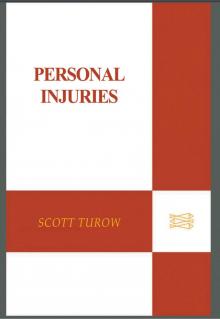 Personal Injuries
Personal Injuries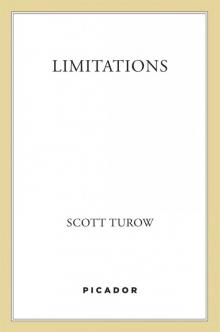 Limitations
Limitations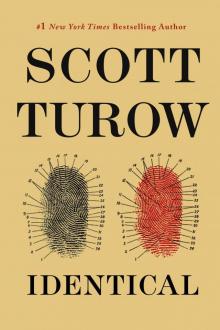 Identical
Identical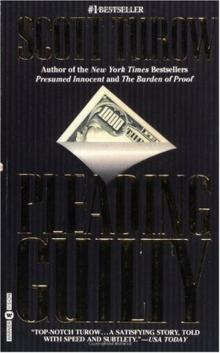 Pleading Guilty
Pleading Guilty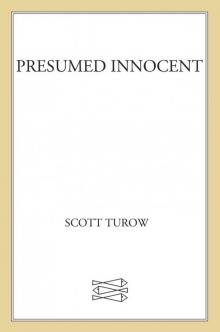 Presumed Innocent
Presumed Innocent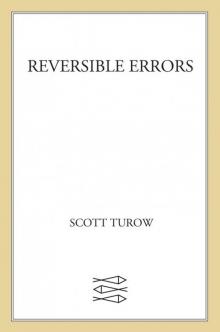 Reversible Errors
Reversible Errors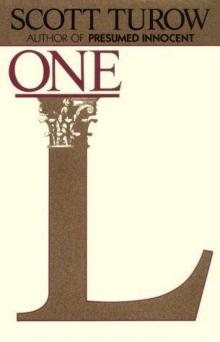 One L: The Turbulent True Story of a First Year at Harvard Law School
One L: The Turbulent True Story of a First Year at Harvard Law School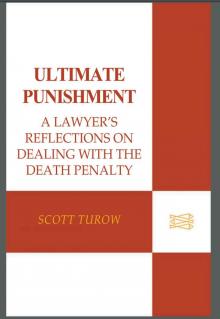 Ultimate Punishment
Ultimate Punishment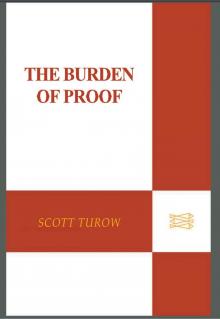 The Burden of Proof
The Burden of Proof Ordinary Heroes (2005)
Ordinary Heroes (2005)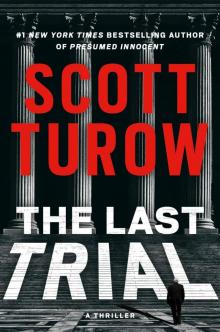 The Last Trial
The Last Trial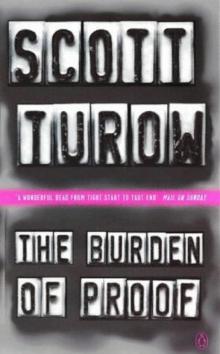 The Burden of Proof kc-2
The Burden of Proof kc-2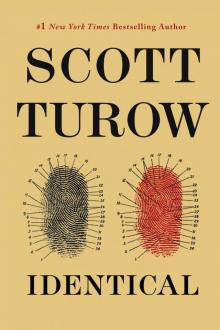 KC09 - Identical
KC09 - Identical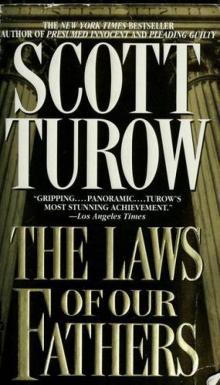 The Laws of our Fathers kc-4
The Laws of our Fathers kc-4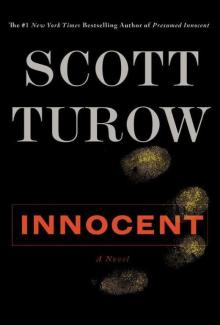 Innocent kc-8
Innocent kc-8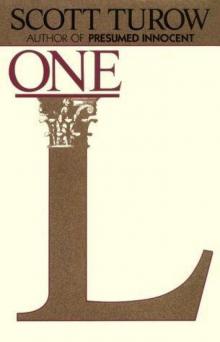 One L
One L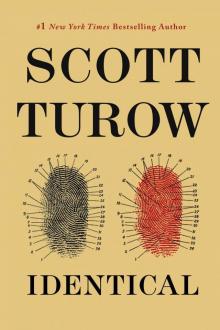 Identical kc-9
Identical kc-9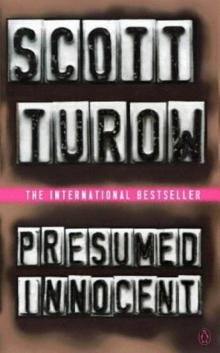 Presumed innocent kc-1
Presumed innocent kc-1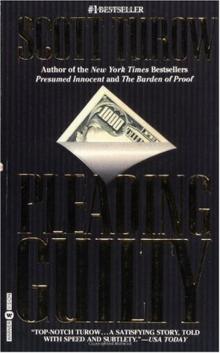 Pleading Guilty kc-3
Pleading Guilty kc-3 One L (1977)
One L (1977)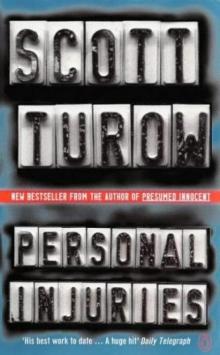 Personal injuries kc-5
Personal injuries kc-5